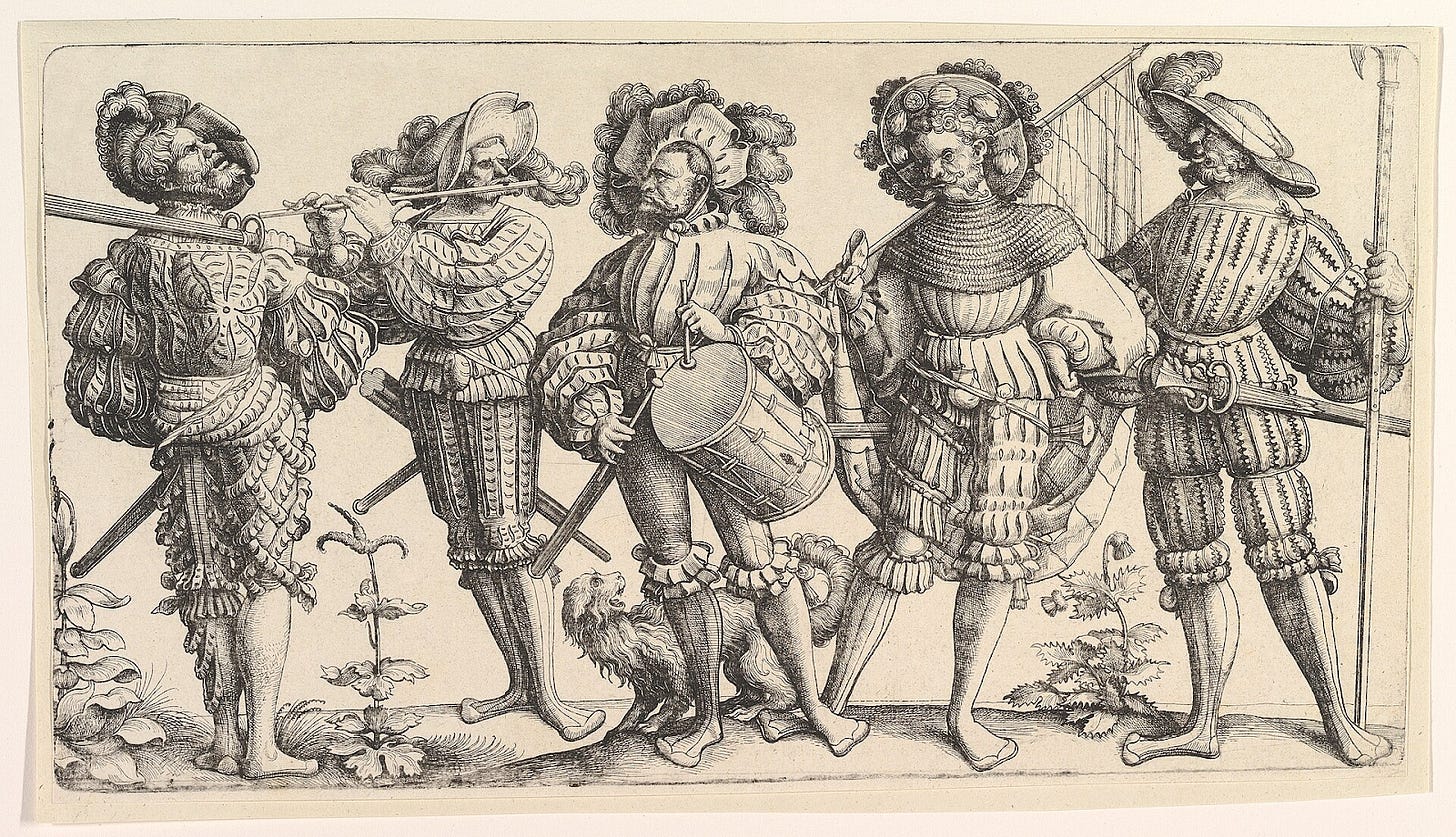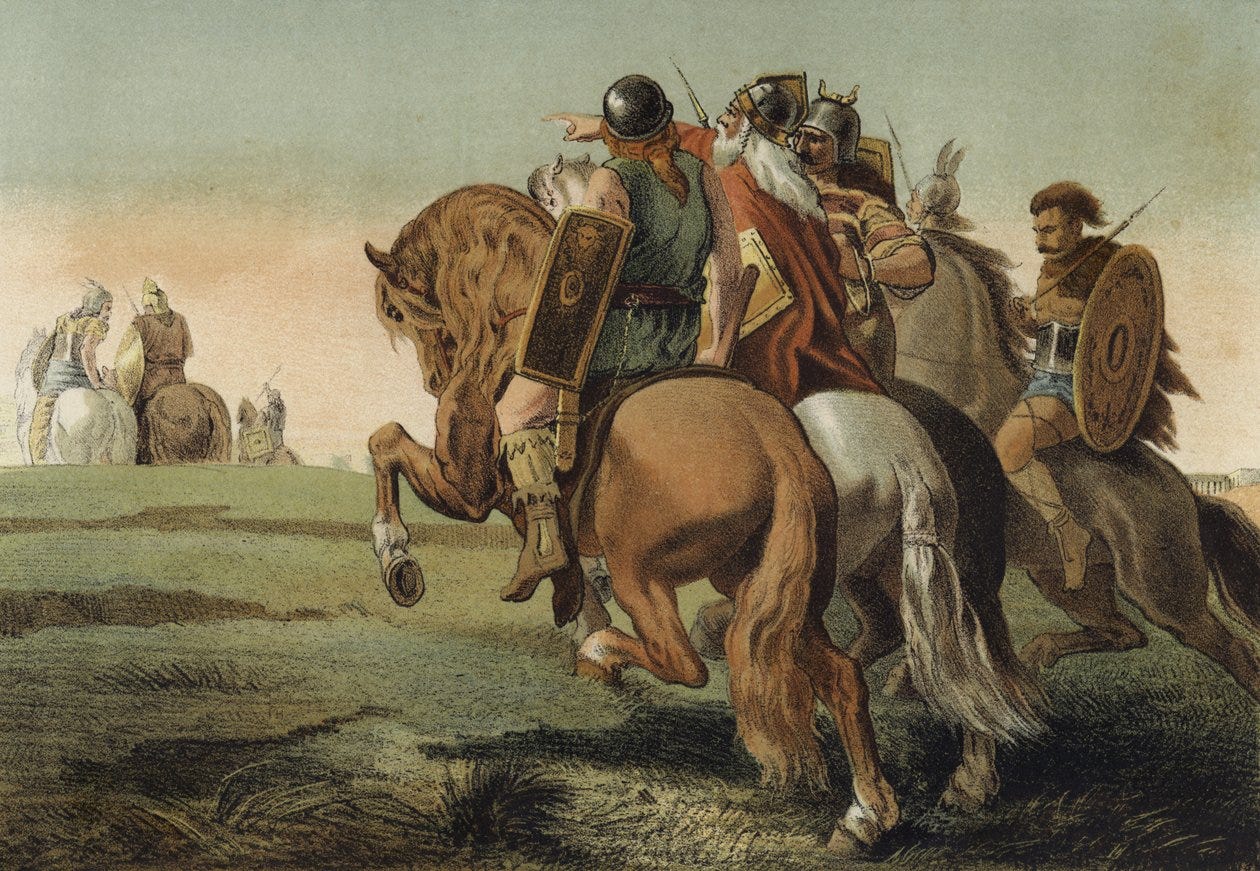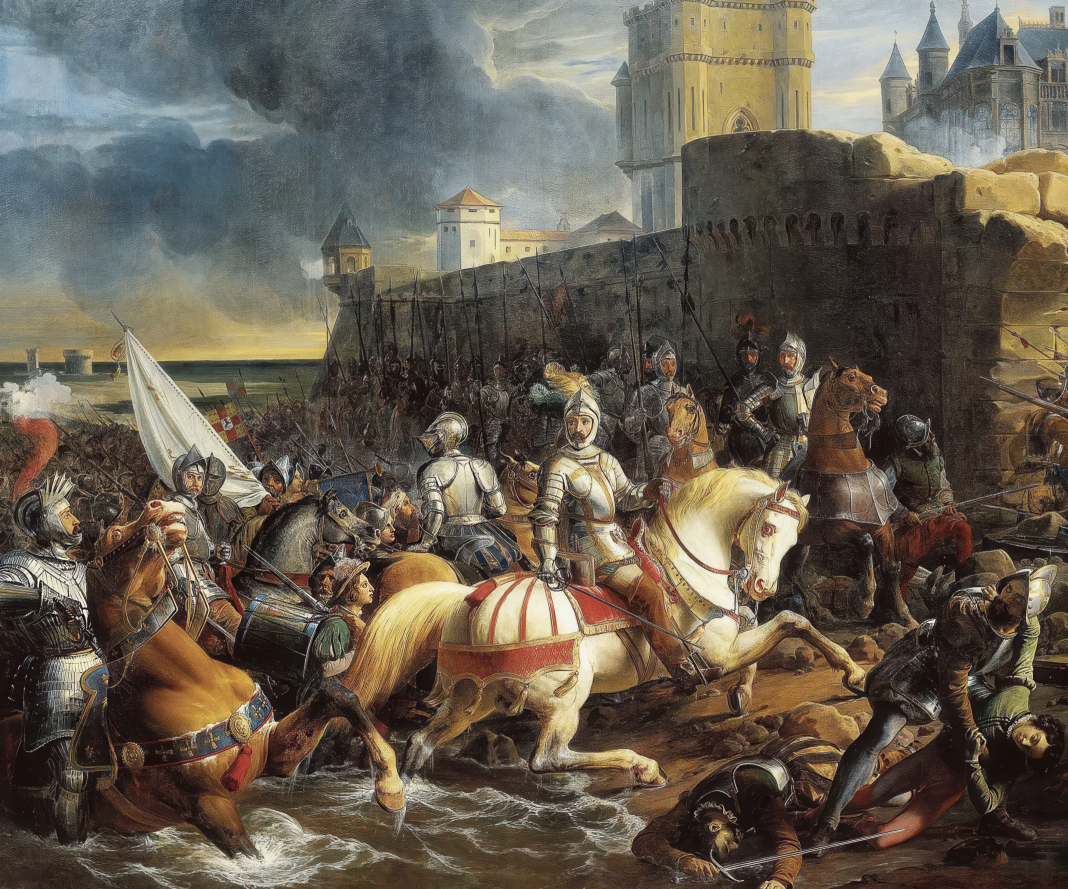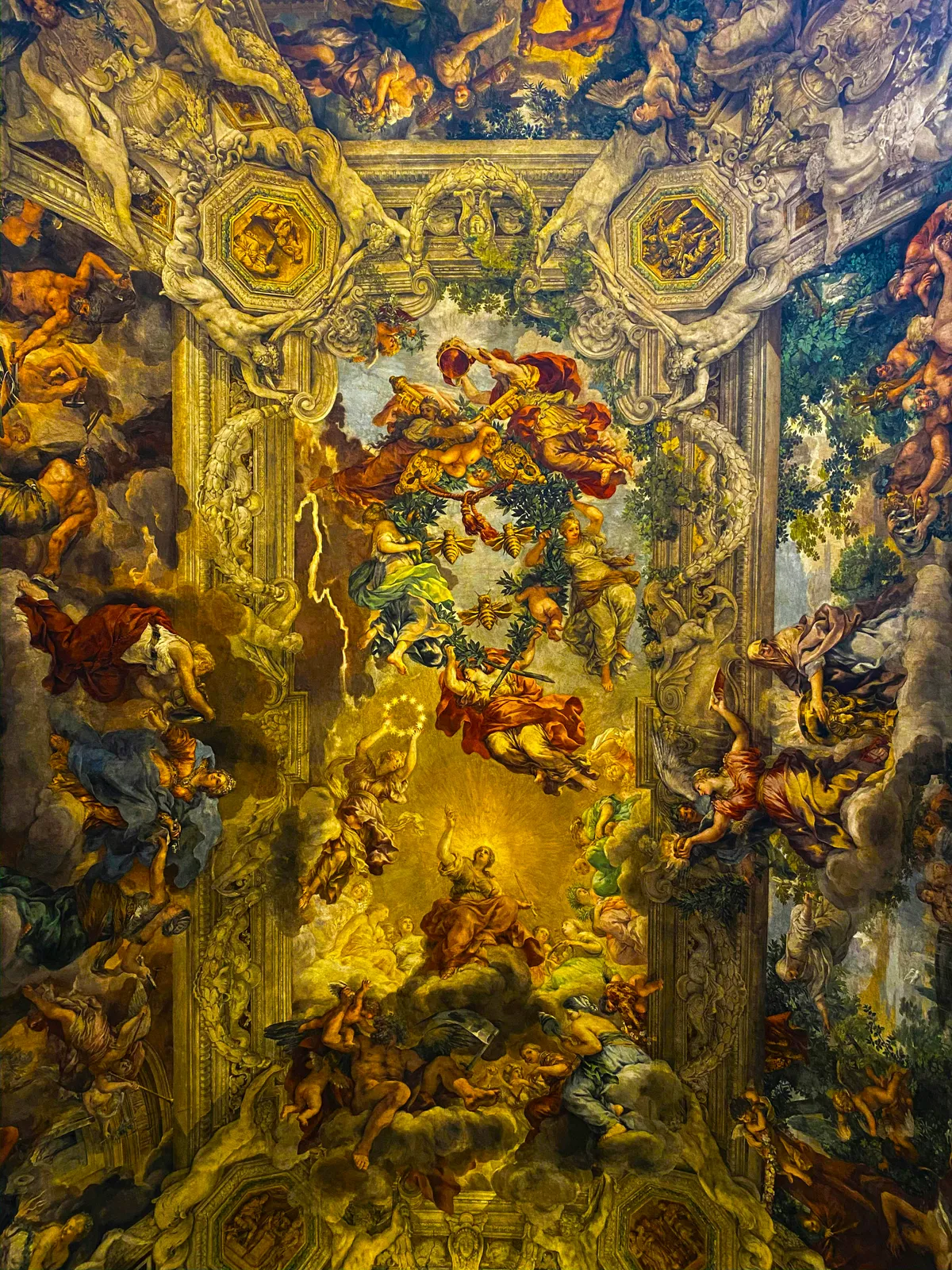The Fatal Flaw That Destroys Nations
Machiavelli and the curse of dependency

Niccolò Machiavelli is best known for promoting a realistic approach to governance — one unbounded by pesky moral or ideological restrictions. His shrewd political philosophy was shaped from his real-world observations as a diplomat in 15th/16th century Florence and from his obsessive reading of history.
In a letter to fellow Florentine Francesco Vettori, Machiavelli describes how he learns from histories greats by reading:
“…I enter the ancient courts of rulers who have long since died...I am not ashamed to talk to them and ask them to explain their actions and they, out of kindness, answer me.”
It’s with an eye toward history that Machiavelli penned his most famous work, The Prince, which is littered with references to events and figures both recent to his own day and from ancient times. And it’s with this same eye that we now read his work and hope to inform our own lives by the examples of great figures who came before us — now with the advantage of a broader understanding of history.
But despite our wealth of historical resources, there are a few works we return to over and over again because they offer timeless wisdom. The Prince is one such work.
Though dressed in the particulars of Renaissance-era Italy, its lessons for rulers are often applicable to today. And there’s one lesson that modern leaders must pay attention to, or risk losing everything…
Reminder: you can support us and get tons of members-only content for a few dollars per month 👇
- Two new, full-length articles every single week
- Access the entire archive of useful knowledge that built the West
- Get actionable principles from history to help navigate modernity
- Support independent, educational content that reaches millions
A Fracture in the Foundations of Power
The Prince is a deeply practical work, covering topics like: the ideal qualities of a ruler; military counsel; and how a ruler should manage his state. For example, Machiavelli proposes that two institutions are integral to a ruler and nations’ legitimacy: sound laws; and sound military forces.
One could argue that sound military forces are actually more fundamental to a states’ well-being than sound laws since laws require protection, which only a strong military can provide.

But Machiavelli also provides ample warnings for how not to manage a state — certain policies are detrimental to a people’s peace and security. Building off his previous claim, he posits that a weakening military brought about by the hiring of mercenaries, rather than native soldiers, will ruin a nation.
Machiavelli writes:
“Now, mercenary and auxiliary forces are useless and dangerous; and any ruler who keeps his state dependent upon mercenaries will never have real peace or security, for they are disorganized, undisciplined, ambitious, and faithless…A prince who employs them will stave off ruin only so long as he can stave off action. In peace he will be despoiled by them; in war he will be despoiled by his enemies.”
Mercenaries, to Machiavelli, are a fracture in one of the two pillars of a sound state. And without strong military forces, the other pillar, a sound law system, is nothing more than a set of empty decrees.
So why did Machiavelli disapprove of mercenaries — why did he believe them to be incompatible with the “peace and security” of a state?
A Question of Loyalty
In Machiavelli's day, mercenaries were becoming increasingly common. As feudalism waned in Western Europe and especially Italy, professional armies filled the void left by vassals who fought in obligation to their lords.
These professional armies were often filled by mercenary soldiers hailing from all over Europe: Swiss mercenaries, German landsknechts, and Balkan stratioti became the hired hands of princes looking to gain an upper hand in battle.

Because foreign mercenaries have no bonds to the people they are fighting for, Machiavelli argues that they have no “tie of devotion” — no motive except pay. And money is a poor reason to risk one’s life.
Machiavelli laments how mercenaries are only eager to work for a prince when the prospect of battle is distant:
“They are quite anxious to be his soldiers so long as he avoids war, but let war come and they will either desert or flee.”
On the other hand, homegrown soldiers are motivated by things beyond mere cash. Regional pride, loyalty, and devotion to family inspire citizens of a state to fight even when the odds are stacked against them.
Playing With Fire
Lack of motivation isn't the only reason one should question the hiring of mercenaries, according to the Florentine. An often overlooked drawback of mercenaries is their potential to become unmanageable after a military success. Machiavelli points out that a mercenary army who achieves great success might realize they no longer need their employer.
Essentially, they become more powerful than the entity which hired them in the first place. In Machiavelli’s day, this was not uncommon as mercenaries sometimes went rogue, betraying their clients…

One example is the condottiero (“mercenary leader”) Paolo Vitelli, who was hired by Florence to besiege Pisa in 1499. After breaking through the city’s defenses, he called off the attack after feeling slighted by the Florentine government because they refused to allow him and his company to loot the city.
Vitelli fled to the countryside, abandoning the siege equipment and giving the Pisans time to recoup. He was eventually executed for treason but the damage was done — Florence failed to capture the city and also lost their best fighter.
It isn’t just mercenaries that Machiavelli warns against in The Prince. He believed that allied forces have similar drawbacks. Like mercenaries, allies lack motivation since they’re not fighting for their own people, and can also be used by rival rulers as “double agents.”
Machiavelli once again draws upon history to support his theory, noting how in 1399, the Byzantine Emperor John Cantacuzene summoned the allied Turks to help settle a dynastic struggle in Greece, but when the struggle ended two years later, the Turks refused to leave their conquered territory and instead subjugated the Greeks. He writes:
“To attack his neighbors, the Emperor of Constantinople sent ten thousand Turks into Greece. When the war ended, they refused to leave. This was the beginning of the enslavement of Greece by the infidels.”
Machiavelli viewed both mercenaries and allied soldiers as potentials for self-sabotage. Though in the near-term they can be useful, the more one relies on them, the more dangerous they become to their employer. Princes should beware their own creations becoming more powerful than themselves.
Harbingers of Doom
Machiavelli isn’t the only thinker to highlight the pitfalls of hiring mercenaries and auxiliaries over domestic soldiers. 20th-century historian Arnold Toynbee, who studied dozens of civilizations, makes similar observations in his work A Study of History.
Toynbee viewed the hiring of mercenaries as a sign of decline — only civilizations who were too weak to conscript their own citizens asked others to fight their battles. And mercenaries actually accelerate decline because they allow foreigners to gather intel on the host nation, too.
Toynbee references Rome as a civilization whose mercenary armies accelerated its downfall. Barbarians who served in the legions sometimes deserted back to their home countries, where they informed their countrymen of the weaknesses in Rome’s armies. Citing Greek historian Zosimus, Toynbee writes:
“This extreme disorganization that was now prevalent in the Roman military formations was no secret to the barbarians…The barbarians’ conclusion was that the Roman body politic was being so grossly mismanaged as positively to invite attack.”

Other great thinkers have also viewed a reliance on mercenaries as a signal that a culture was no longer “up to snuff”. Greek historian Polybius claims in his Histories that a dependence on mercenaries, rather than maintaining a strong civilian army, was a fatal error for Carthage during the First Punic War. He writes:
“The first [mistake] was in collecting at one place so large a body of mercenaries while themselves they could hope for nothing from the fighting power of their civic force.”
Machiavelli blames the downfall of Italian governments solely on mercenaries, claiming, “...Italy’s ruin has had no other cause but the fact that for so many years she relied upon mercenary forces.”
Fate Leads the Willing, and Drags the Unwilling
It’s not a stretch to see how Machiavelli’s warning against mercenaries can be applied not only to the battlefield, but other areas of life. Carl Jung stated once that “Life is a battleground,” so it makes sense that wartime lessons can be extrapolated beyond the trenches.
The concept of “mercenary work” essentially boils down to outsourcing responsibilities and ventures to those we cannot trust. This applies to business, personal relationships, even geopolitics.
But what’s the solution?
Back in the realm of Machiavelli’s battlefield strategy, he claims that armies should be led by their own citizens or princes:
“…the control of troops should be in the hands of princes or republics. A prince ought to take personal charge and serve as commander; a republic ought to appoint one of its citizens.”

It's ultimately a question of self sufficiency. The takeaway? Those who don’t control their own destiny are doomed to fail. Machiavelli’s conclusive message here is that a kingdom will stand or fall depending upon its ability to be self-reliant:
“...it is necessary to consider whether [a people] stand on their own or whether they depend upon others; that is, whether in order to fulfill their mission they must plead or can compel. When the first is the case, it always happens that matters turn out badly and they achieve nothing. But when they depend upon their own resources and can use force, they rarely fail.”
So with an eye toward history in true Machiavellian fashion, let’s heed the advice of the great Florentine, and ensure that in all realms of our lives and communities we are self-reliant. To become dependent on those who do not share our interests means civilizational suicide.



